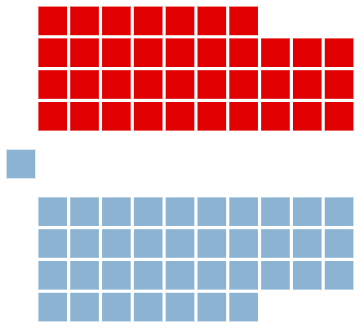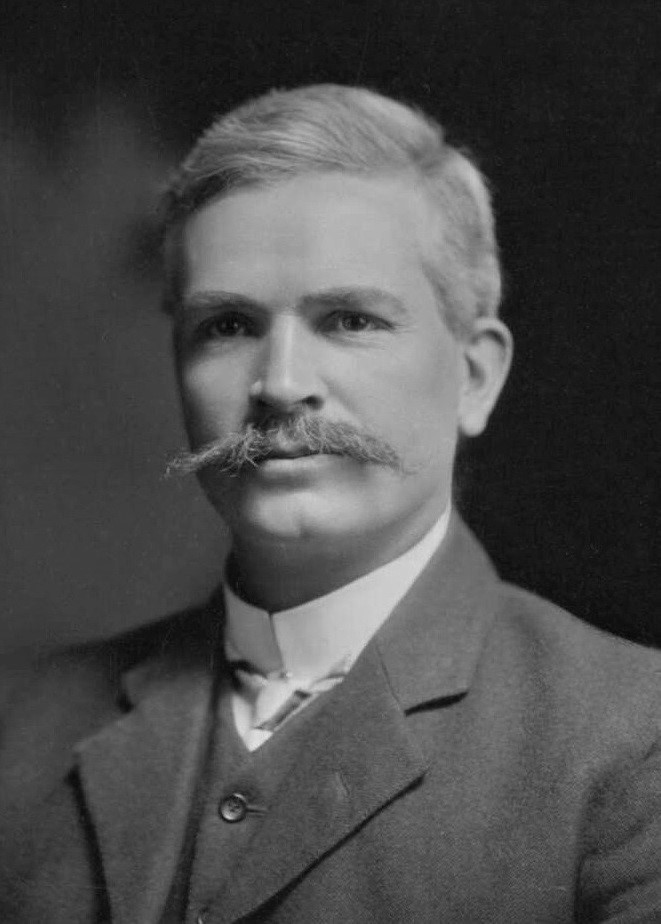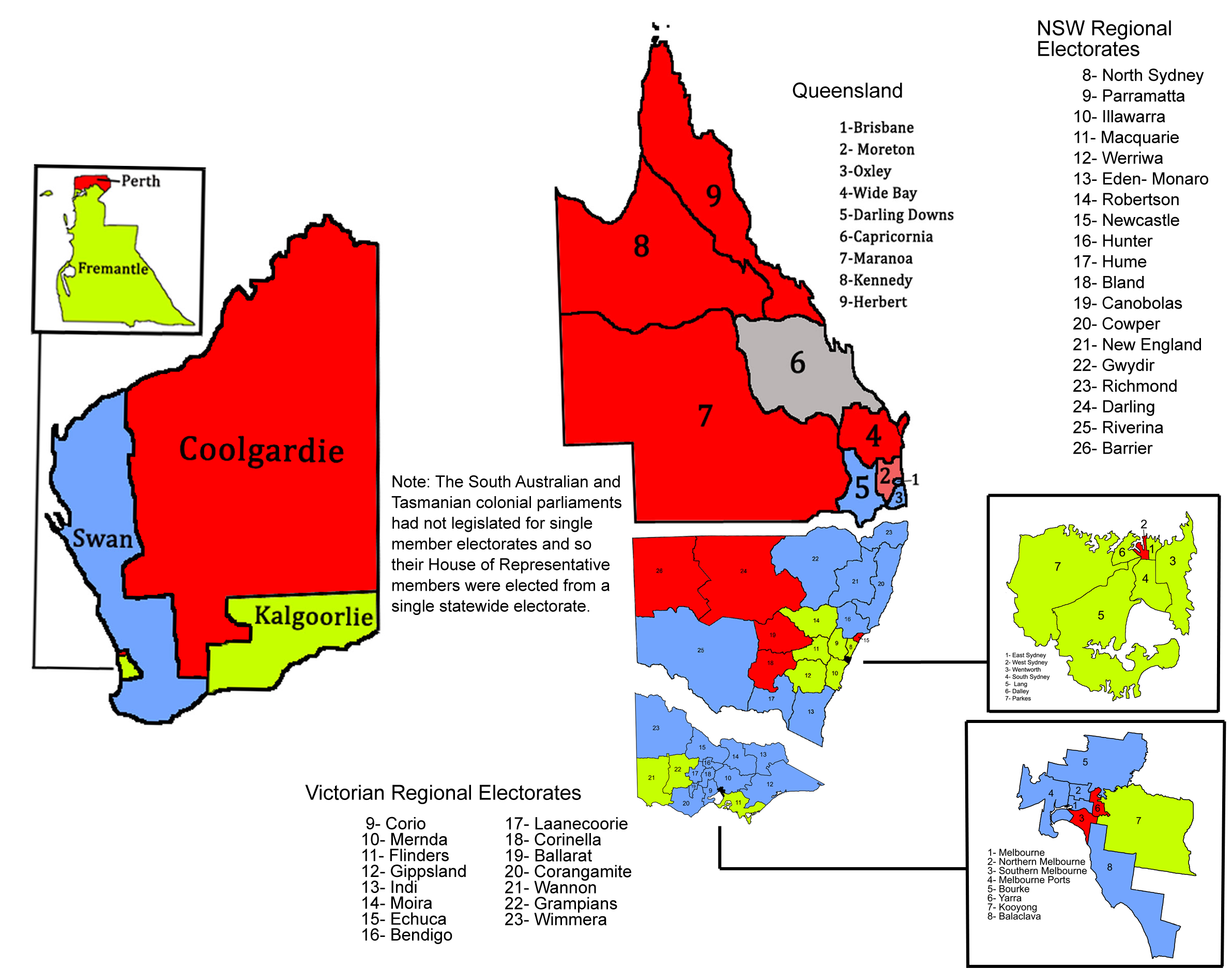|
James Hume Cook
James Newton Haxton Hume Cook CMG (23 September 1866 – 8 August 1942) was an Australian politician. He was a member of the House of Representatives from 1901 to 1910, after previously serving in the Victorian Legislative Assembly from 1894 to 1900. He was a member of the anti-socialist parties and served as a minister without portfolio under Alfred Deakin. Early life Hume Cook was born in Kihikihi, New Zealand. He was the eldest of the nine children of James Cook, a private in the Waikato Militia and later a failed farmer, originally from Walsall, England, and his wife Janet Mair, from Rutherglen, Scotland. Hume Cook’s schooling was limited by his family’s poverty; in his teens in Melbourne he worked with his father, a semi-skilled tradesman, then set out on his own selling real estate in 1887. He also soon became active in the Australian Natives' Association. In 1893, he was elected to Brunswick Town Council and in 1896 became mayor. In 1902, he married Nellie ... [...More Info...] [...Related Items...] OR: [Wikipedia] [Google] [Baidu] |
The Honourable
''The Honourable'' (British English) or ''The Honorable'' (American English; see spelling differences) (abbreviation: ''Hon.'', ''Hon'ble'', or variations) is an honorific style that is used as a prefix before the names or titles of certain people, usually with official governmental or diplomatic positions. Use by governments International diplomacy In international diplomatic relations, representatives of foreign states are often styled as ''The Honourable''. Deputy chiefs of mission, , consuls-general and consuls are always given the style. All heads of consular posts, whether they are honorary or career postholders, are accorded the style according to the State Department of the United States. However, the style ''Excellency'' instead of ''The Honourable'' is used for ambassadors and high commissioners. Africa The Congo In the Democratic Republic of the Congo, the prefix 'Honourable' or 'Hon.' is used for members of both chambers of the Parliament of the Democratic Repu ... [...More Info...] [...Related Items...] OR: [Wikipedia] [Google] [Baidu] |
Australian Natives' Association
The Australian Natives' Association (ANA) was a mutual society founded in Melbourne, Australia in April 1871. It was founded by and for the benefit of native-born white Australians and membership was restricted exclusively to that group. The Association's objectives were to "raise funds by subscription, donations ... for the purpose of relieving sick members, and defraying expenses of funeral of members and their wives, relieving distressed widows and orphans and for the necessary expenses of the general management of the Society." The organisation had 95,000 members in 1976 and provided benefits to 250,000 people, members and their families. While the ANA was legally required to have no affiliation with any political party, it was socially active. It provided strong support for the Federation of Australia, sport, afforestation, social well-being and the Federal Government's restricted immigration policy, later referred to as the White Australia policy. The ANA and Manchester U ... [...More Info...] [...Related Items...] OR: [Wikipedia] [Google] [Baidu] |
1913 Australian Federal Election
The 1913 Australian federal election was held in Australia on 31 May 1913. All 75 seats in the House of Representatives, and 18 of the 36 seats in the Senate were up for election. The incumbent Labor Party, led by Prime Minister Andrew Fisher, was defeated by the opposition Commonwealth Liberal Party under Joseph Cook. The new government had a majority of just a single seat, and held a minority of seats in the Senate. It would last only 15 months, suffering defeat at the 1914 election. The 1913 election was held in conjunction with six referendum questions, none of which were carried. According to David Day, Andrew Fisher's biographer, "it was probably the timing of the referenda that was most responsible for the disappointing election result" for the Labor Party. Results House of Representatives ---- ;Notes * Three members were elected unopposed – one Liberal and two Labor. Senate Seats changing hands * Members listed in italics did not contest their seat at t ... [...More Info...] [...Related Items...] OR: [Wikipedia] [Google] [Baidu] |
Division Of Maribyrnong
The Division of Maribyrnong is an Australian electoral division in the state of Victoria. It is located in the inner north-western suburbs of Melbourne. Suburbs include Aberfeldie, Airport West, Avondale Heights, Essendon, Footscray, Gowanbrae, Keilor East, Maribyrnong, Moonee Ponds, Niddrie, West Footscray and Tullamarine. Due to redistributions, the division has been slowly moving west and changed with the introduction of the Division of Fraser in 2018. According to the 2011 census, Maribyrnong has the highest proportion of Catholics in any Commonwealth Electoral Division in Australia with 41.6% of the population. Geography Since 1984, federal electoral division boundaries in Australia have been determined at redistributions by a redistribution committee appointed by the Australian Electoral Commission. Redistributions occur for the boundaries of divisions in a particular state, and they occur every seven years, or sooner if a state's representation entitlement chang ... [...More Info...] [...Related Items...] OR: [Wikipedia] [Google] [Baidu] |
1910 Australian Federal Election
The 1910 Australian federal election was held in Australia on 13 April 1910. All 75 seats in the House of Representatives, and 18 of the 36 seats in the Senate were up for election. The incumbent Commonwealth Liberal Party (the result of a merger between the Protectionist Party and the Anti-Socialist Party) led by Prime Minister Alfred Deakin was defeated by the opposition Labour Party, led by Andrew Fisher. The election represented a number of landmarks: it was Australia's first elected federal majority government; Australia's first elected Senate majority; the world's first Labour party majority government at a national level; after the 1904 Chris Watson minority and Fisher's former minority government the world's third Labour party government at a national level; the first time it controlled ''both'' houses of a bicameral legislature; and the first time that a prime minister, in this case Deakin, was defeated at an election. It also remains the only election in Australia's ... [...More Info...] [...Related Items...] OR: [Wikipedia] [Google] [Baidu] |
Australian Labor Party
The Australian Labor Party (ALP), also simply known as Labor, is the major centre-left political party in Australia, one of two major parties in Australian politics, along with the centre-right Liberal Party of Australia. The party forms the federal government since being elected in the 2022 election. The ALP is a federal party, with political branches in each state and territory. They are currently in government in Victoria, Queensland, Western Australia, South Australia, the Australian Capital Territory, and the Northern Territory. They are currently in opposition in New South Wales and Tasmania. It is the oldest political party in Australia, being established on 8 May 1901 at Parliament House, Melbourne, the meeting place of the first federal Parliament. The ALP was not founded as a federal party until after the first sitting of the Australian parliament in 1901. It is regarded as descended from labour parties founded in the various Australian colonies by the emerging la ... [...More Info...] [...Related Items...] OR: [Wikipedia] [Google] [Baidu] |
Postal Services
The mail or post is a system for physically transporting postcards, letters, and parcels. A postal service can be private or public, though many governments place restrictions on private systems. Since the mid-19th century, national postal systems have generally been established as a government monopoly, with a fee on the article prepaid. Proof of payment is usually in the form of an adhesive postage stamp, but a postage meter is also used for bulk mailing. With the advent of email, the retronym "snail mail" was coined. Postal authorities often have functions aside from transporting letters. In some countries, a postal, telegraph and telephone (PTT) service oversees the postal system, in addition to telephone and telegraph systems. Some countries' postal systems allow for savings accounts and handle applications for passports. The Universal Postal Union (UPU), established in 1874, includes 192 member countries and sets the rules for international mail exchanges as a Specializ ... [...More Info...] [...Related Items...] OR: [Wikipedia] [Google] [Baidu] |
Third Deakin Ministry
The Third Deakin ministry (Liberal) was the 7th ministry of the Government of Australia. It was led by the country's 2nd Prime Minister, Alfred Deakin. The Fourth Deakin ministry succeeded the First Fisher ministry, which dissolved on 2 June 1909 after the Protectionist Party and the Anti-Socialist Party merged into the Liberal Party "fusion" and withdrew their support in order to form what became the first majority government in federal Australian history. The ministry was replaced by the Second Fisher ministry on 29 April 1910 following the federal election that took place on 13 April which saw the Labour Party defeat the Liberals. Joseph Cook Sir Joseph Cook, (7 December 1860 – 30 July 1947) was an Australian politician who served as the sixth Prime Minister of Australia, in office from 1913 to 1914. He was the leader of the Liberal Party from 1913 to 1917, after earlier serving ..., who died in 1947, was the last surviving member of the Third Deakin ministry. ... [...More Info...] [...Related Items...] OR: [Wikipedia] [Google] [Baidu] |
1901 Australian Federal Election
The 1901 Australian federal election for the inaugural Parliament of Australia was held in Australia on Friday 29 March and Saturday 30 March 1901. The elections followed Federation and the establishment of the Commonwealth of Australia on 1 January 1901. All 75 seats in the Australian House of Representatives, six of which were uncontested, as well as all 36 seats in the Australian Senate, were up for election. After the initial confusion of the Hopetoun Blunder, the first Prime Minister of Australia, Edmund Barton, went into the inaugural 1901 federal election as the appointed head of a Protectionist Party caretaker government. While the Protectionists came first on votes and seats, they fell short of a majority. The incumbent government remained in office with the parliamentary support of the Labour Party, who held the balance of power, while the Free Trade Party formed the opposition. A few months prior to the 1903 election, Barton resigned to become a founding membe ... [...More Info...] [...Related Items...] OR: [Wikipedia] [Google] [Baidu] |
Federation Of Australia
The Federation of Australia was the process by which the six separate British self-governing colonies of Queensland, New South Wales, Victoria, Tasmania, South Australia (which also governed what is now the Northern Territory), and Western Australia agreed to unite and form the Commonwealth of Australia, establishing a system of federalism in Australia. The colonies of Fiji and New Zealand were originally part of this process, but they decided not to join the federation. Following federation, the six colonies that united to form the Commonwealth of Australia as states kept the systems of government (and the bicameral legislatures) that they had developed as separate colonies, but they also agreed to have a federal government that was responsible for matters concerning the whole nation. When the Constitution of Australia came into force, on 1 January 1901, the colonies collectively became states of the Commonwealth of Australia. The efforts to bring about federation in the m ... [...More Info...] [...Related Items...] OR: [Wikipedia] [Google] [Baidu] |
Electoral District Of East Bourke Boroughs
East Bourke Boroughs was an electoral district of the Legislative Assembly in the Australian state of Victoria Victoria most commonly refers to: * Victoria (Australia), a state of the Commonwealth of Australia * Victoria, British Columbia, provincial capital of British Columbia, Canada * Victoria (mythology), Roman goddess of Victory * Victoria, Seychelle ... from 1859 to 1904. The district was defined in the Electoral Districts Act of 1858 as: Members for East Bourke Boroughs One member originally, two from 1889. References {{DEFAULTSORT:East Bourke Boroughs Former electoral districts of Victoria (state) 1859 establishments in Australia 1904 disestablishments in Australia ... [...More Info...] [...Related Items...] OR: [Wikipedia] [Google] [Baidu] |







